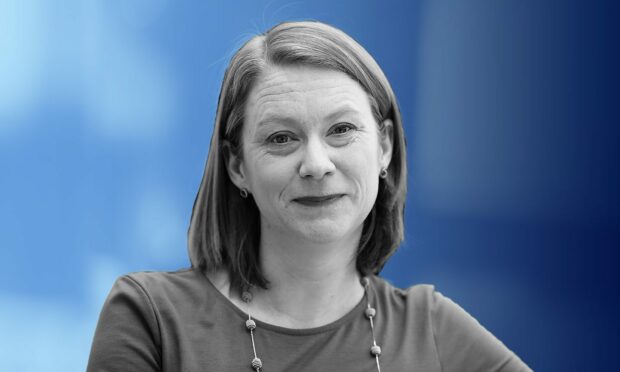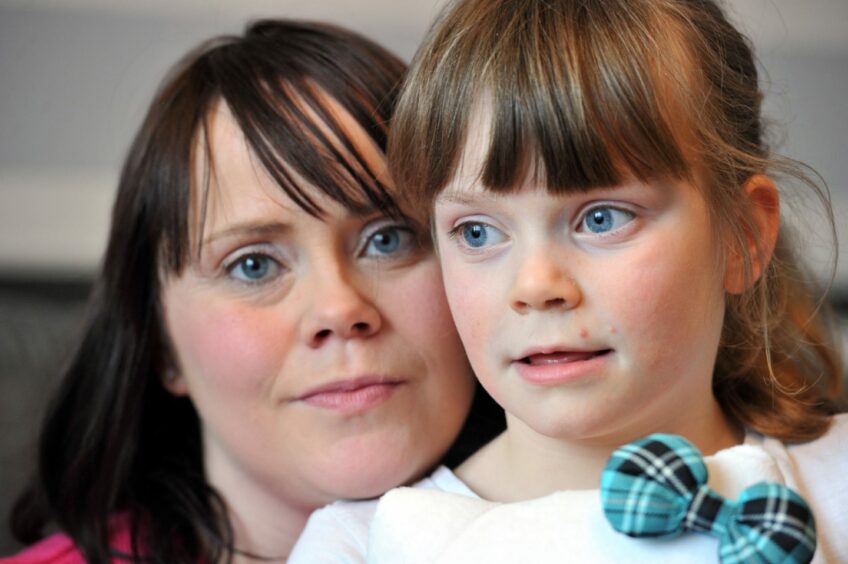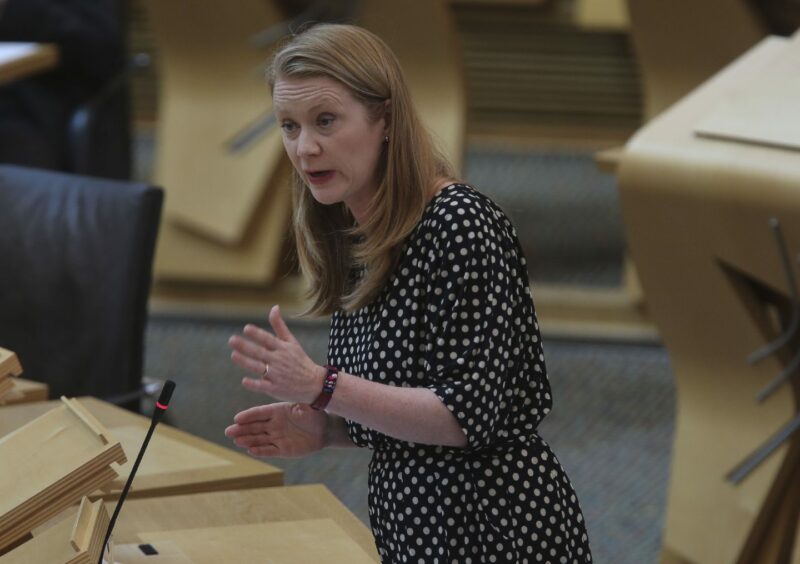Shirley-Anne Somerville acknowledged that autism support can be “confusing and difficult for families” and said local and national government will deliver improvements.
The Education Minister gave an exclusive interview to the P&J in the wake of our special investigation into autism support.
Families in Aberdeen, Moray and Highland described accessing basic services as a “battle”. Some resorted to court action and spent thousands on private consultants.
Their children are unique, with unique challenges. But their rights are universal.
In the video interview below, we put parents’ autism concerns to the Education Minister. The burning question: What will you do to make it better?
Mainstream is still the goal
Jayne Scollay from Wick has two autistic sons who haven’t made it to school for years. Jayne says mainstream education is unable to meet their needs.
Lorna Pattie drives four hours a day from Elgin to Inverness to get her daughter into the special school where she is thriving.
I asked the Education Minister: Are you confident that local authorities can support children with autism in mainstream?
Ms Somerville said mainstream is where teachers and parents believe young people should be. However, families can request a move if their child isn’t thriving.
“It’s very important that local authorities work with parents to ensure a young person can have the education they have a right to, within their local authority,” said Ms Somerville.
Whether they are in mainstream or special schools, autistic pupils need extra help to learn. For pupils with the most complex needs, the key to unlocking that help is a Co-ordinated Support Plan (CSP).
Yet the statistics show a 64% drop in the number of CSPs issued nationally. Families say even when they get them, they often fail to deliver.
Karen McNeill took her council to tribunal to secure a CSP, as did many of the other families we spoke to. Karen’s question for the minister: How will you improve CSPs?
Working to remove the barriers
The Minister emphasised that CSPs are one of many types of educational plan – though they are the only plan with legal backing.
Ms Somerville acknowledged there are problems, and said the Government is taking action.
“We do recognise that there can be barriers to the implementation of CSPs. That’s exactly why the Scottish Government has a working group, and that report published at the end of 2021.
“We’re determined to move forward with the really detailed work to see what those barriers are and what we can do to take those barriers away, both at a national government and local government level.”
The Scottish Government will release an action plan in the autumn. However, the Minister stopped short of promising more money to tackle rising demand.
‘It’s not for national government to interfere’
The core issue for many families is what Govan Law Centre called a “postcode lottery” in service provision. Leslie Sharp in Highland and Lorna Pattie in Moray both raised problems with a lack of support in their local area.
Leslie says there are no respite centres north of Inverness, while Lorna has to travel four hours a day to take her daughter to special school in the Highlands.
The Education Minister said it’s up to councils to decide how and where to provide autism support.
“There is a responsibility on local authorities to act upon what they’re required to do. There’s a danger of a top down approach of any government in Edinburgh attempting to dictate what care should look like.”
This will be cold comfort to the families who spoke to the P&J. Autism consultant Lisa Moir asked what the Minister will do to hold councils to account if they don’t deliver on national policies. Highland mum Alana Findlay put it more simply: what will you do to make it better?
The Minister’s response was clear: “It’s not for national government to interfere.”
Autistic children don’t need fixed
However, Ms Somerville said the government does fund several organisations who can help.
“If mediation and arbitration don’t work there are other avenues out there.
“I would encourage any family who is concerned that they’re not being supported to look at some of those organisations funded by the Scottish Government, such as Enquire or one of the charities… to ensure they know their rights and can be supported.”
The Scottish Government is also exploring ‘pathfinder’ projects to help understand the journey families take through statutory services.
Ms Somerville emphasised that support is there, regardless of an official diagnosis. The Scottish Government’s position is that early intervention should take place as soon as concern is raised.
That support is not just for the child, but for the family too. Ms Somerville believes that nationally, we have come a long way.
“We have, over generations, developed our understanding and our appreciation of the challenges families face.
“The important thing to recognise is a child with autism sees the world in a different way to us. They’re not broken; they don’t need fixed.
“They may need support, but they don’t need to change. It’s society that does.”
Useful links:
Scottish Autism
National Autistic Society Scotland
Enquire
Govan Law Centre
Read more from our autism investigation
Autism investigation: The north-east parents taking legal action to get their child an education
What are the signs of autism in children and how can I get support?
Elgin family reveal ‘soul destroying’ battle to secure place in special needs school




Conversation